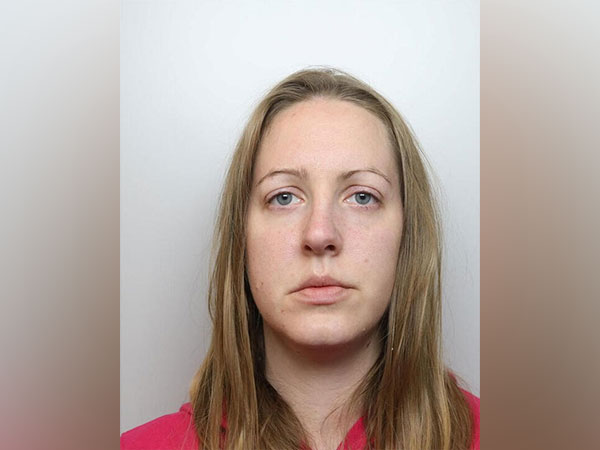Lucy's Lethal Care: The Shocking Case of Britain's Most Prolific Child Killer
Former nurse Lucy Letby, convicted last year as Britain's most prolific serial child killer, was found guilty of attempting to murder another newborn. Already serving a life sentence for the murder of seven babies and attempting to kill six more, Letby has been the focus of substantial legal and public scrutiny. An inquiry has been ordered to investigate why earlier concerns about her actions were ignored.

Former nurse Lucy Letby was found guilty on Tuesday of trying to murder another newborn baby, adding to convictions last year that made her Britain's most prolific serial child killer of modern times. Letby, 34, was found guilty last August of murdering seven babies and trying to kill six more between June 2015 and June 2016 while working as a nurse in the neonatal unit of the Countess of Chester Hospital in Chester, northern England.
She was jailed for life and told she would never be released. Letby denied having harmed any baby in her care. Last month, she went on trial for a second time on one count of attempted murder of a further baby girl, known as Child K, a charge on which the original jury had failed to reach a verdict.
Prosecutor Nick Johnson told Manchester Crown Court that Child K was born prematurely at 25 weeks in February 2016 at the hospital, and had been connected to a ventilator and other machines monitoring her heart rate and oxygen levels. Little more than an hour after the birth, while other staff were absent, Johnson said, senior doctor Ravi Jayaram entered the room where she was being looked after to find the baby's breathing tube dislodged, alarms that should have sounded had become disabled, and Letby standing there "doing nothing".
Johnson added that on two further occasions that night, Letby interfered with the breathing tube to give the impression there was a particular problem with the baby. "These were the actions of a cold-blooded, calculated killer," Senior Crown Prosecutor Nicola Wyn Williams said in a statement on Tuesday following the verdict.
Child K died in a different hospital three days later, although the prosecution said this had nothing to do with the allegation against Letby. In her evidence, Letby again denied having ever harmed any baby put in her care, and said she had no recollection of the night in question. Her defence lawyer said the evidence was not there to prove her guilt.
Letby was originally found guilty of killing the five baby boys and two baby girls by injecting the infants with insulin or air, or force-feeding them milk. The case shocked Britain and prompted the government to order an inquiry into why concerns about her behaviour had not been heeded by hospital bosses.
Police also said they were carrying out further investigations into whether there were other victims at hospitals where Letby had previously worked. For some on social media, Letby has become a cause celebre who was herself a victim of a terrible miscarriage of justice and, ahead of the latest trial, the New Yorker magazine ran an article questioning the evidence against her.
In May, however, England's Court of Appeal rejected
her attempt to overturn her conviction, which had been mainly based on arguments that evidence from the prosecution's expert witness was flawed.
(This story has not been edited by Devdiscourse staff and is auto-generated from a syndicated feed.)
ALSO READ
Selfless Sacrifice: Nurse Dies Helping Victim in Arkansas Shooting
Justice Served: Oklahoma Executes Convicted Child Killer
Lucy Letby Denies All Convictions in Baby Murder Trial
Dramatic US News: From Heroic Nurse to Biden's Election Moves
Convicted Nurse Lucy Letby Found Guilty of Attempted Murder in Newborn Case










